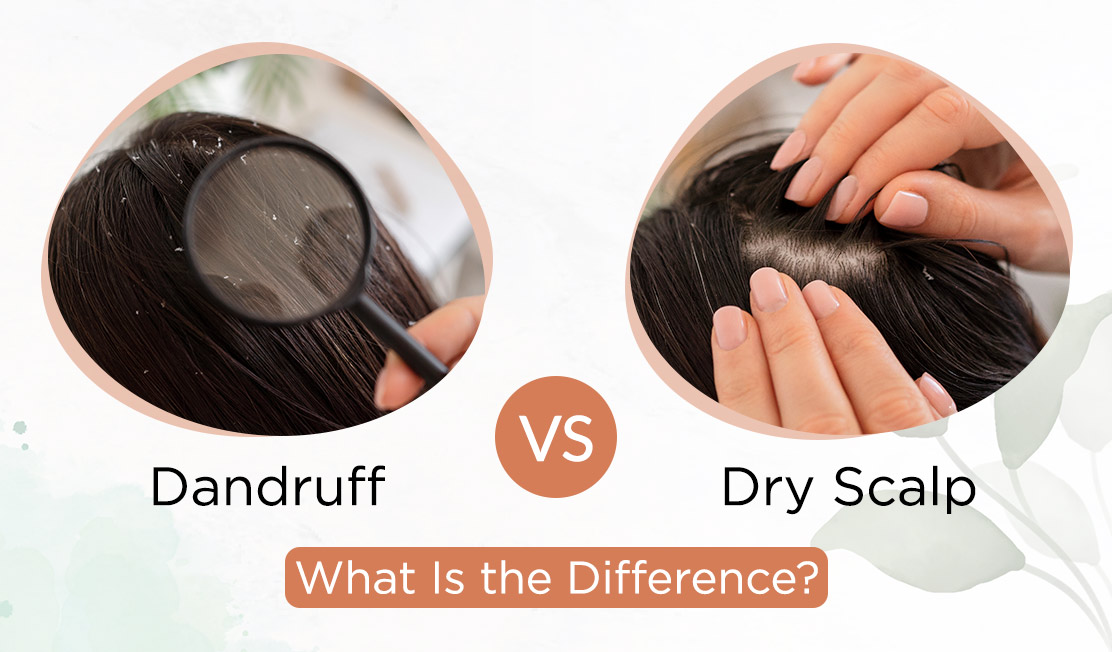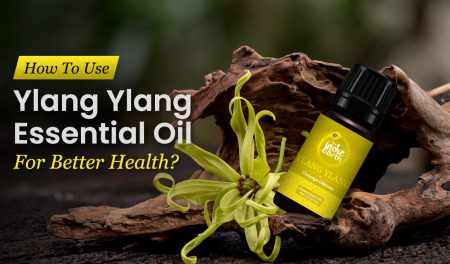Many people around the globe consider an itchy head or flaky scalp a sign of dandruff. But is it dandruff or just the dryness of the scalp, or is it dandruff caused by the dryness of the scalp? Indeed, it is difficult to tell. Dandruff and dry scalp are interchangeably used terms but are not precisely the same. Dandruff is a scalp infection that can be caused by fungi. Dry Scalp is a disorder characterized by flaking of the scalp. Typically, flakes that are greasy and thick indicate dandruff, whereas flakes that are dry and tiny indicate a dry scalp.
Despite having overlapping symptoms, dandruff and dry scalp are two different terms with distinct characteristics that need to be understood. Let’s dig in and learn the differences in symptoms and causes of both conditions.
What is Dandruff?
Dandruff is an infection of the scalp that can be caused by fungi. This condition manifests itself when the scalp fails to produce or retain adequate moisture. Dandruff is a condition that causes flakes to be shed from the scalp, which may also cause visible flakes to appear on garments or in the hair.
What is a Dry Scalp?
The cause of dry scalp is typically dry skin on the scalp or the surrounding area. The inability to create or retain moisture is what differentiates dandruff Vs. Dry Scalp. The sebum and essential oil that usually keep the scalp moisturized are not produced in sufficient quantities by this type of skin. The result is that the topmost layer of the skin dries up, cracks, and eventually sheds in the form of small flakes.
Key Difference Between Dandruff And Dry Scalp
According to some dermatologists, the main difference between dandruff vs. dry scalp is that the former is a medical condition while the latter results from dehydration. However, another simple difference is the skin texture. Scalp skin, in most cases, gets excessively oily when there is dandruff, unlike the dry scalp.
Dandruff produces extra sebum and skin cells on the scalp that accumulate, making the skin feel flaky and itchy. In contrast, a dry scalp is linked with less or no production of natural oils from the skin, making the scalp feel cracked, itchy, and flaky.
Symptoms of Dandruff and Dry Scalp
Dandruff vs. dry scalp has similar symptoms that make it confusing for people to differentiate. But still, there exist slight differences that must be noticed to identify the exact condition for their treatments. The differences in symptoms are as follow
- In dandruff, the falling flakes are slightly larger and yellowish compared to dry scalp flakes.
- The scalp and hair due to dandruff look oilier and greasier. It feels dry or scaly when there is a dry scalp.
- Unlike the dry scalp, there is no inflammation or redness on the scalp when there is dandruff.
Those with an itchy scalp may experience shedding of the flakes from hair. In contrast to dandruff flakes, dry scalp’ flakes are usually smaller and whiter. Dandruff flakes are bigger and may have a yellow tint or an oily appearance.
Causes Of Dandruff and Dry Scalp
Dermatologists have not exactly identified the main reason behind the production of dandruff. However, a major contributing factor is the natural living fungus on the human scalp or other harmless scalp infections. Other causes include excessive oily skin, chemical-induced solid hair products, or stress.
Whereas a dry scalp is the result of skin type, hormonal imbalance, dry weather conditions, or the use of medications that causes dryness of the skin. In such a situation, not only does the scalp feel tight, irritating, and flaky, but the hair also appears extremely dry.
Both Dandruff and dry scalp can improve with treatment. While dry scalp can be improved by decreasing shampooing, both disorders can cause irritation and itching. When symptoms are severe, individuals with either condition may scratch their scalp so much that it gets red or develops small ulcers.
Conclusion
It might be difficult to tell the difference between dandruff and dry scalp because both conditions generate flakes and irritated skin on the head. Flakes that are oily and thick are often indicative of dandruff, while dry and smaller flakes represent dry scalp. Therefore, to get the appropriate treatment and get rid of the problem, the person who is experiencing the condition must be aware of the distinction between Dandruff Vs. Dry Scalp.
Dandruff and dry scalp are two distinct conditions that must be diagnosed before using any hair care product. The shampoos, creams, therapies, and prevention methods are different for both. Therefore, one must speak to the doctor and treat the diagnosed problem appropriately.
The Indie Earth offers effective solutions for treating dry scalp as well as dandruff.
Buy – Red Onion Shampoo
Buy – Arabica Coffee Shampoo
Buy – Red Onion Oil
















